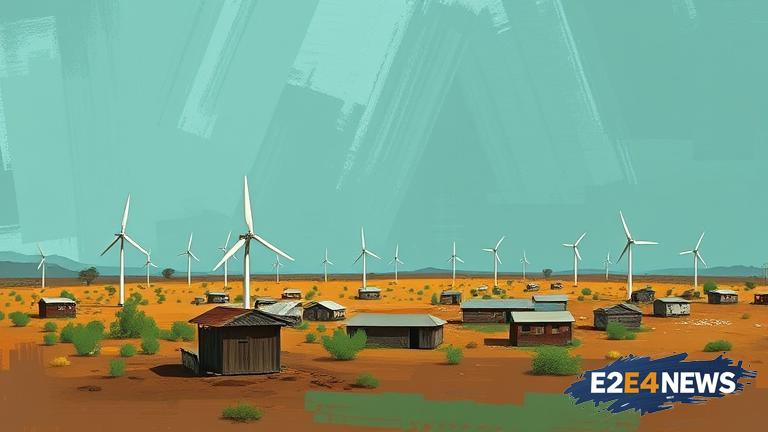The African continent is witnessing a significant shift towards renewable energy, driven by the need to address the pressing issues of energy access, energy security, and climate change. With many countries still struggling to provide reliable and affordable electricity to their citizens, renewable energy has emerged as a viable solution. Solar and wind power are leading the charge, with countries like South Africa, Egypt, and Morocco investing heavily in these sectors. The African Renewable Energy Initiative, launched in 2015, aims to achieve at least 300 GW of renewable energy capacity by 2030. This ambitious target is expected to create new economic opportunities, stimulate growth, and improve the overall quality of life for Africans. The use of renewable energy can also help reduce greenhouse gas emissions, which contribute to climate change. Climate change has severe implications for Africa, including more frequent droughts, floods, and heatwaves. By transitioning to renewable energy, African countries can reduce their reliance on fossil fuels, which are not only harmful to the environment but also volatile in terms of price. The cost of renewable energy is decreasing dramatically, making it more competitive with fossil fuels. This trend is expected to continue, driven by technological advancements and economies of scale. As the demand for renewable energy continues to grow, new industries and job opportunities are emerging. The manufacturing of solar panels and wind turbines, for example, is creating new employment opportunities in countries like China and the United States. In Africa, countries like South Africa and Egypt are also investing in the manufacturing of renewable energy technologies. The growth of renewable energy in Africa is not without its challenges, however. Financing remains a significant obstacle, as many countries struggle to attract investment in the sector. Additionally, the lack of infrastructure and skilled personnel can hinder the development of renewable energy projects. Despite these challenges, the future of renewable energy in Africa looks promising. With the right policies and investments in place, the continent can unlock its vast renewable energy potential and achieve a more sustainable and prosperous future. The private sector is also playing a crucial role in the development of renewable energy in Africa, with companies like Vestas and Siemens Gamesa investing in wind energy projects. International cooperation is also essential, with countries like China, the United States, and the European Union providing financial and technical support to African countries. The African Union has also launched several initiatives to promote the development of renewable energy, including the African Renewable Energy Initiative and the Programme for Infrastructure Development in Africa. These initiatives aim to create a favorable environment for the development of renewable energy, including the provision of financing, technical assistance, and capacity building. In conclusion, the renewable energy revolution in Africa is gaining momentum, driven by the need to address the pressing issues of energy access, energy security, and climate change. With the right policies and investments in place, the continent can unlock its vast renewable energy potential and achieve a more sustainable and prosperous future.




